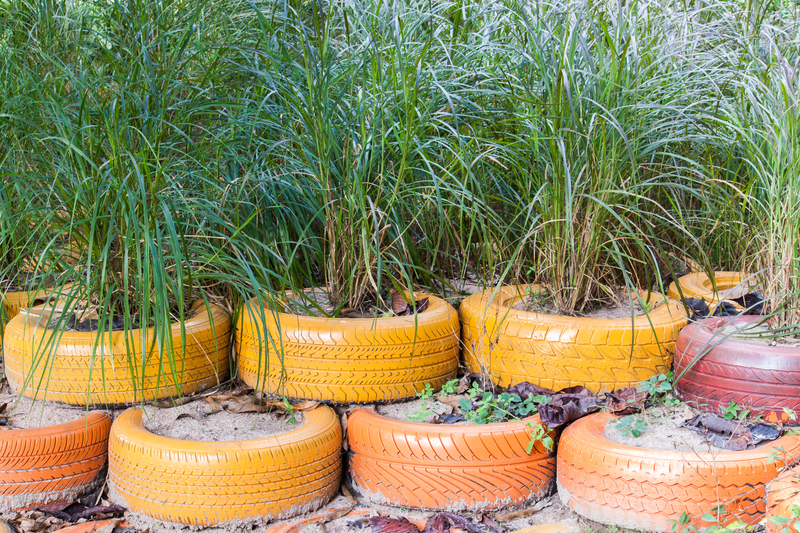In an ever-evolving economic landscape, jobs creation is a crucial factor for sustainable development. Simultaneously, the burgeoning importance of metal recycling has emerged as a pertinent solution to environmental and economic challenges. Here, we delve into how these two critical areas intersect, providing dual benefits: economic stimulation and ecological preservation.
The Importance of Metal Recycling
Before exploring the intricate relationship between job creation and metal recycling, it's essential to understand why metal recycling is vital. The benefits are multifaceted, impacting both the environment and the economy:
- Conservation of Natural Resources: Recycling metals reduces the need for mining, thereby preserving vital natural resources and minimizing environmental degradation.
- Energy Efficiency: The process of recycling metals like aluminum and steel is significantly less energy-intensive compared to the extraction and processing of virgin ore.
- Reduction of Greenhouse Gases: By using recycled materials, we cut down on emissions associated with manufacturing processes.
- Economic Savings: Recycling provides cheaper raw materials for various industries, promoting cost-effective manufacturing.
Hence, metal recycling not only helps in protecting the ecosystem but also supports economic structures by providing sustainable and cost-effective materials.

Jobs Creation through Metal Recycling
The linkage between life-sustaining employment opportunities and the task of recycling metals is undeniable. Here's how the recycling industry contributes to job creation:
The Recycling Industry as a Job Generator
According to various studies, the recycling sector generates more jobs per ton of waste compared to landfilling or incineration. Here's a breakdown of how recycling plays a role in economic growth:
- Collection and Sorting: This process involves a substantial workforce responsible for collecting recyclable materials and ensuring they are sorted appropriately.
- Processing Facilities: Once collected, metals are sent to facilities that process them into reusable forms, requiring skilled laborers and management staff.
- Manufacturing Initiatives: Recycled metals are crucial inputs for manufacturing industries, spawning new businesses and expanding existing ones.
- Research and Development (R&D): Innovation in recycling technologies and methods sees the rise of R&D roles, ensuring efficiency and effectiveness.
Economic Impact and Career Opportunities
Recycling metal not only contributes to environmental health but also enhances economic vitality. The opportunities are vast, encompassing various sectors and skill levels:
1. Blue-Collar Jobs: Roles in collection, sorting, and processing provide solid employment for individuals with diverse skill sets, fortifying community income levels.
2. Technological and Engineering Professions: The advancement of recycling technology demands a technical workforce adept at handling sophisticated machinery designed for processing recycled metals.
3. Managerial and Administrative Roles: Operations within recycling facilities and coordinating logistics require skilled managerial staff to oversee and optimize processes.
4. Entrepreneurial Ventures: The recycling sector offers fertile ground for startups focusing on innovative solutions in metal recovery and reuse, sparking entrepreneurial growth.

Challenges and Solutions in Jobs Creation through Recycling
Despite its advantages, the recycling industry faces multiple challenges in fulfilling its employment potential. It's critical to address these to harness the full economic benefits:
Challenges
- Infrastructure Deficiencies: Inefficient infrastructure can hinder recycling processes, limiting job creation prospects.
- Lack of Consumer Awareness: Without robust public education, recycling efforts and employment opportunities may fall short of their potential.
- Policy and Regulation Hurdles: Inconsistent regulations can disrupt the recycling sector's operations and growth trajectory, impeding job creation.
Solutions
- Investment in Infrastructure: Governments and private stakeholders should invest in modernizing recycling facilities to enhance productivity.
- Educational Campaigns: Awareness programs should be promoted to instill the importance of recycling within communities.
- Harmonized Regulations: Streamlining policies across regions will stimulate both recycling processes and employment growth.
By addressing these challenges, the recycling industry can not only provide a cleaner environment but also foster job creation on a significant scale.
The Future of Jobs and Metal Recycling
Looking ahead, job creation intertwined with metal recycling sets a profound precedent for a sustainable future. Here's how the industry could evolve:
Technological Advancements
With the rapid advancement in recycling technology, job roles are likely to transform, demanding skilled professionals capable of navigating emerging technologies.
Policy Enhancement
A focus on implementing aggressive recycling targets and incentives can further catalyze job creation and economic dynamism.
Global Collaboration
International partnerships can expedite the exchange of best practices in recycling, leading to enhanced and equitable job opportunities worldwide.
In conclusion, the symbiotic relationship between metal recycling and jobs creation represents a promising avenue for economic and environmental prosperity. By embracing this potential, we can collectively engineer an eco-friendly and economically robust future.